In Focus This Week
Pipelines to Election Work
Who becomes an election official
By Paul Manson and Paul Gronke (Elections & Voting Information Center) and TJ Pyche (The Elections Group)
Election administration is in the midst of another structural shift – and this time, the change requires assessing how best  to recruit and retain talent in election administration. In a new analysis, we argue that the field must be treated as a skilled profession with clear career pathways, competitive compensation, and multiple on-ramps that preserve and grow expertise.
to recruit and retain talent in election administration. In a new analysis, we argue that the field must be treated as a skilled profession with clear career pathways, competitive compensation, and multiple on-ramps that preserve and grow expertise.
Past moments of rapid change, such as the 2000 election cycle and the passage of the Help America Vote Act, shaped how jurisdictions register voters, deploy certified voting systems, and run early and absentee voting. Offices responded by retraining and expanding staff.
Today’s challenge looks different: election work has become more technical, more visible, and less forgiving of error. With immovable deadlines and no “do-overs,” success depends on deep, specialized knowledge across logistics, IT, communications, and compliance, both among chief election officials and the larger workforce that rarely reaches the top job. New skills are also expected in this era, from voter education to public relations.
EVIC’s Local Election Official Survey shows how varied the role can be for chief local election officials. Some officials are solo practitioners, while others manage large, complex teams ranging in size from a dozen to hundreds or more.
What this means is that focusing only on the leader of the organization gives us only the first note of the song. In large jurisdictions, especially, many career election professionals are technical specialists whose skills are in demand elsewhere in government and the private sector – making retention a growing concern. We argue in our analysis that we need to learn much more about the rest of the election workforce.
Pathways into the profession are diverse and often depend on jurisdiction size and the manner in which officials are selected for the role. In the 2022 survey, 57% of LEOs were elected, 27% appointed, and 15% hired into positions with civil service protections. Hired LEOs most often come from other local government roles (43%), with a significant share from private business (32%). For elected and appointed LEOs, the pattern flips: approximately 41% arrive from the private sector and about a quarter from local government. In smaller, often rural offices, the pool of government jobs is thinner and the “ladder” is short. In those offices, officials wear many hats beyond elections (budgets, licensing, tax reporting, even 911 oversight), leaving limited room for specialization or advancement.
These results point to a big gap in current knowledge. We need to learn much more to be effective in crafting workforce development policy. Even with EVIC’s surveys, we lack long-term measures and an understanding of staff-level roles and trajectories. Without a clearer picture of how people enter, advance, and exit the profession, it will be harder to design effective recruitment and retention strategies.
We propose a practical agenda to strengthen the election workforce:
- Collect more and better longitudinal data on who enters, stays, and leaves (and why).
- Map internal progression paths, even in small offices, with titles, mentorship, and step increases tied to election-specific skills.
- Build external entry points through fellowships and internships with universities and community colleges.
- Update job classifications and compensation to match the work’s complexity and make invisible skills visible.
- Tell the profession’s story to attract mission-driven talent.
- Diversify on-ramps while protecting institutional knowledge via certifications, boot camps, and rotational programs.
Bottom line: The election workforce is resilient, but resilience shouldn’t require constant personal sacrifice. Read the full blog post for the data, tables, and detailed recommendations.
electionline Temporary Schedule Changes
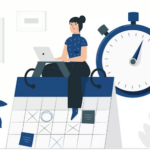 Daily News: From October 3 through October 14 the Daily News will publish each day, however publication times will vary.
Daily News: From October 3 through October 14 the Daily News will publish each day, however publication times will vary.
electionline Daily News Email
 What’s the best part of waking up? electionline Daily News in your inbox of course so be sure to sign up for your daily dose.
What’s the best part of waking up? electionline Daily News in your inbox of course so be sure to sign up for your daily dose.
Each morning you’ll receive the top headlines of the day, plus a listing of states featured in that day’s news round up.
To sign up, simply visit our site and provide us with your email and you’ll begin receiving the news in your inbox each morning.
We Google so you don’t have to!
Election News This Week
 Hill Lobby: Last week, a group of bipartisan local elections officials were on Capitol Hill to lobby for more federal funding for election security. According to Votebeat, the visit was coordinated by Project for Election Infrastructure, a nonpartisan nonprofit focused on advocating for funding for state and local election administration, and that has been urging Congress to appropriate $400 million for election security in fiscal year 2026. “Every county clerk and election official probably has a different idea and a different need for what funding they’d have for those infrastructure dollars,” said Knox County, Illinois Clerk and Recorder of Deeds Scott Erickson . “A lot of it is cybersecurity funding to maintain our products, and for equipment. We just bought new voting machines for the first time in 20 years.” While the officials met mostly with staff, some, like those from Maryland, did get to speak directly to representatives from their state. “They are all acknowledging the need,” said Brian Sleeth, the director of elections in Warren County, Ohio, after a morning of meetings on the House side. Tonya Wichman, director of elections in Defiance County, Ohio, said part of the goal is making sure members understand what election officials do and what they need in order to do it. “The standards are set so high,” she said. The House put $15 million in election infrastructure funding in an appropriations bill for fiscal year 2026, but it remains to be seen what Congress will eventually do
Hill Lobby: Last week, a group of bipartisan local elections officials were on Capitol Hill to lobby for more federal funding for election security. According to Votebeat, the visit was coordinated by Project for Election Infrastructure, a nonpartisan nonprofit focused on advocating for funding for state and local election administration, and that has been urging Congress to appropriate $400 million for election security in fiscal year 2026. “Every county clerk and election official probably has a different idea and a different need for what funding they’d have for those infrastructure dollars,” said Knox County, Illinois Clerk and Recorder of Deeds Scott Erickson . “A lot of it is cybersecurity funding to maintain our products, and for equipment. We just bought new voting machines for the first time in 20 years.” While the officials met mostly with staff, some, like those from Maryland, did get to speak directly to representatives from their state. “They are all acknowledging the need,” said Brian Sleeth, the director of elections in Warren County, Ohio, after a morning of meetings on the House side. Tonya Wichman, director of elections in Defiance County, Ohio, said part of the goal is making sure members understand what election officials do and what they need in order to do it. “The standards are set so high,” she said. The House put $15 million in election infrastructure funding in an appropriations bill for fiscal year 2026, but it remains to be seen what Congress will eventually do
 Early Results from Alaska: Voting ended this week in several Alaska localities where how and when elections are run was on the ballot. Although ballots are still being counted in the Kenai Peninsula Borough, Proposition 1 would require that ballots cast in person on Election Day be counted by hand, rather than with electronic tabulators. The changes that would become effective next year is currently failing with 52.6% NO and 47.4% YES. However, Proposition 5 that would move the borough’s election date to November to align with state and federal elections is currently passing 64.4% YES to 35.6% NO.
Early Results from Alaska: Voting ended this week in several Alaska localities where how and when elections are run was on the ballot. Although ballots are still being counted in the Kenai Peninsula Borough, Proposition 1 would require that ballots cast in person on Election Day be counted by hand, rather than with electronic tabulators. The changes that would become effective next year is currently failing with 52.6% NO and 47.4% YES. However, Proposition 5 that would move the borough’s election date to November to align with state and federal elections is currently passing 64.4% YES to 35.6% NO.
 Civic Nation: This week, Civic Nation launched Civic Nation 2030, the organization’s new roadmap for the next five years to strengthen civic culture, power and participation. Civic Nation 2030 aims to respond to the urgent needs of the current moment while building the foundations for a better future. “From the COVID-19 pandemic and loneliness epidemic to the rise of social media and AI, Americans have begun to not only lose faith in democracy, but in each other. We can, and must, rebuild trust from the ground up to reverse the cycle of civic unraveling we find ourselves in. There is no easy solution to our country’s issues, but together, we can face this urgent challenge head on and create a more civic nation,” said Civic Nation CEO Kyle Lierman. The majority of Americans no longer believe democracy is working and many are opting out of the process as a result. In 2024, one in three eligible voters and more than half of young people ages 18–29 did not cast a ballot, and only 28% of people over the age of 16 formally volunteered in their communities. Over the next five years, Civic Nation will engage 20 million Americans to take action, solve problems and help their communities thrive. As an impact hub for ideas, leaders and initiatives, Civic Nation is home to: ALL IN Campus Democracy Challenge: Empowering colleges and universities to achieve excellence in nonpartisan student democratic engagement. Change Collective: Building a new national community of local changemakers to drive change, solve problems and bridge divides. It’s On Us: Building the movement to combat campus sexual assault by giving students the tools they need to create a culture of prevention. We The Action: Uniting lawyers with nonprofits to expand access to justice and deliver free legal services where they are critically needed. When We All Vote: Increasing civic participation in each and every election to close the race and age voting gap and change the culture around voting.
Civic Nation: This week, Civic Nation launched Civic Nation 2030, the organization’s new roadmap for the next five years to strengthen civic culture, power and participation. Civic Nation 2030 aims to respond to the urgent needs of the current moment while building the foundations for a better future. “From the COVID-19 pandemic and loneliness epidemic to the rise of social media and AI, Americans have begun to not only lose faith in democracy, but in each other. We can, and must, rebuild trust from the ground up to reverse the cycle of civic unraveling we find ourselves in. There is no easy solution to our country’s issues, but together, we can face this urgent challenge head on and create a more civic nation,” said Civic Nation CEO Kyle Lierman. The majority of Americans no longer believe democracy is working and many are opting out of the process as a result. In 2024, one in three eligible voters and more than half of young people ages 18–29 did not cast a ballot, and only 28% of people over the age of 16 formally volunteered in their communities. Over the next five years, Civic Nation will engage 20 million Americans to take action, solve problems and help their communities thrive. As an impact hub for ideas, leaders and initiatives, Civic Nation is home to: ALL IN Campus Democracy Challenge: Empowering colleges and universities to achieve excellence in nonpartisan student democratic engagement. Change Collective: Building a new national community of local changemakers to drive change, solve problems and bridge divides. It’s On Us: Building the movement to combat campus sexual assault by giving students the tools they need to create a culture of prevention. We The Action: Uniting lawyers with nonprofits to expand access to justice and deliver free legal services where they are critically needed. When We All Vote: Increasing civic participation in each and every election to close the race and age voting gap and change the culture around voting.
 Congratulations: The Center for Digital Government (CDG) has recognized the Idaho Secretary of State’s redesigned elections website, VoteIdaho.gov, as a Project Winner in the 2025 Government Experience Awards. The national institute’s awards honor the states, cities, counties, and agencies delivering more accessible, equitable, and engaging digital services. VoteIdaho.gov was recognized as an outstanding example of how technology and design can improve the way residents experience government. “We’re honored to receive national recognition for VoteIdaho.gov, along with our design partner, Mitchell+Palmer,” said Secretary of State Phil McGrane. “Our goal with the redesign of VoteIdaho.gov was simple – to make voting information engaging, accessible, and easy to consume for all Idahoans. We’re continuing to build on the features that make the website stand out. I encourage all Idahoans to visit the site to easily register to vote, check and update your registration, view a sample ballot for the upcoming November election, find your polling place, and much more.” The Government Experience Project Awards honor digital initiatives that make it easier for residents to connect with the government. This year, 41 governments nationwide were recognized for innovation, creativity, and a commitment to better public service.
Congratulations: The Center for Digital Government (CDG) has recognized the Idaho Secretary of State’s redesigned elections website, VoteIdaho.gov, as a Project Winner in the 2025 Government Experience Awards. The national institute’s awards honor the states, cities, counties, and agencies delivering more accessible, equitable, and engaging digital services. VoteIdaho.gov was recognized as an outstanding example of how technology and design can improve the way residents experience government. “We’re honored to receive national recognition for VoteIdaho.gov, along with our design partner, Mitchell+Palmer,” said Secretary of State Phil McGrane. “Our goal with the redesign of VoteIdaho.gov was simple – to make voting information engaging, accessible, and easy to consume for all Idahoans. We’re continuing to build on the features that make the website stand out. I encourage all Idahoans to visit the site to easily register to vote, check and update your registration, view a sample ballot for the upcoming November election, find your polling place, and much more.” The Government Experience Project Awards honor digital initiatives that make it easier for residents to connect with the government. This year, 41 governments nationwide were recognized for innovation, creativity, and a commitment to better public service.
 Congratulations Part II: Governing Magazine has named Kentucky Secretary of State Michael Adams Public Official of the Year, one of seven nationally. According to a release from Adams’ office, each year, Governing honors state and local leaders on both sides of the aisle who have accomplished significant changes for those they serve. The publication, which covers policy and management in state and local government, commends Adams’ balance of handling election security and ballot access concerns in executing bipartisan voting reforms that began with the onset of the COVID-19 pandemic. “It took a major crisis just to compel Kentucky to catch up with what the rest of the country had been doing for a long time, which is making it easier for people to vote,” Adams told the Herald-Leader. “Unfortunately, we’ve chosen to be a backwater for a long time and not keep up with current trends, and it took local crises being managed well to improve our standing.” It’s Adams’ second national recognition, after the John F. Kennedy Library Foundation presented him with the JFK Profile in Courage Award in 2024. Now in his second term as secretary of state, the graduate of Harvard Law School was elected in 2019. He has worked to expand early voting in the commonwealth and has pushed back against false claims about rigged elections as the state’s chief election officer. “When people look at Washington and see dysfunction and the federal government literally not working, this is a great reminder that there is another way: toning down the rhetoric and working together to solve our biggest challenges,” Adams said.
Congratulations Part II: Governing Magazine has named Kentucky Secretary of State Michael Adams Public Official of the Year, one of seven nationally. According to a release from Adams’ office, each year, Governing honors state and local leaders on both sides of the aisle who have accomplished significant changes for those they serve. The publication, which covers policy and management in state and local government, commends Adams’ balance of handling election security and ballot access concerns in executing bipartisan voting reforms that began with the onset of the COVID-19 pandemic. “It took a major crisis just to compel Kentucky to catch up with what the rest of the country had been doing for a long time, which is making it easier for people to vote,” Adams told the Herald-Leader. “Unfortunately, we’ve chosen to be a backwater for a long time and not keep up with current trends, and it took local crises being managed well to improve our standing.” It’s Adams’ second national recognition, after the John F. Kennedy Library Foundation presented him with the JFK Profile in Courage Award in 2024. Now in his second term as secretary of state, the graduate of Harvard Law School was elected in 2019. He has worked to expand early voting in the commonwealth and has pushed back against false claims about rigged elections as the state’s chief election officer. “When people look at Washington and see dysfunction and the federal government literally not working, this is a great reminder that there is another way: toning down the rhetoric and working together to solve our biggest challenges,” Adams said.
Personnel News: Mark Waltz has resigned from the Tuscarawas County, Ohio Board of Elections. Louisville Mayor Craig Greenberg has appointed Kentucky Senate Democratic Whip David Yates to serve an unexpired term as Jefferson County, Kentucky clerk. Christine White, the second person to ever hold the position, officially took office as Uvalde County, Texas elections administrator Oct. 1. Beau Bayh, a seventh generation Hoosier and a U.S. Marine Corps captain has filed to run for Indiana secretary of state. San Diego, California Registrar of Voters Cynthia Paes has announced she plans to retire next February, after 23 years of service to the community with the county. New Hanover, North Carolina County Elections Director, Rae Hunter-Havens, has announced her immediate retirement. Former Shasta County, California Assistant Clerk and Registrar of Voters, Joanna Francescut, has started an elections consulting business. Former Escambia County, Florida Supervisor of Elections David Stafford has been named the new city administrator for Pensacola.
New Research and Resources
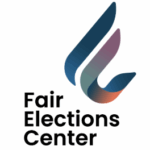 Motor Voter and Nondrivers: This week, the Fair Elections Center published a new report illuminating recent findings that show a wide and alarming gap in voter registration and turnout rates between people who have a driver’s license and people who do not. The new report addresses structural barriers that contribute to this gap and emphasizes an urgent need for state policymakers to expand access to ensure eligible voters without a driver’s license can participate in democracy. Since most states rely on DMV records and transactions to facilitate voter-friendly registration methods such as online voter registration and automatic voter registration, people without licenses face additional barriers to register and vote. For this subset of the electorate—many of whom are young voters, people with disabilities, members of low-income households, and Black and/or Hispanic Americans—these structural limitations create barriers long before they even get an opportunity to vote. Key findings include:
Motor Voter and Nondrivers: This week, the Fair Elections Center published a new report illuminating recent findings that show a wide and alarming gap in voter registration and turnout rates between people who have a driver’s license and people who do not. The new report addresses structural barriers that contribute to this gap and emphasizes an urgent need for state policymakers to expand access to ensure eligible voters without a driver’s license can participate in democracy. Since most states rely on DMV records and transactions to facilitate voter-friendly registration methods such as online voter registration and automatic voter registration, people without licenses face additional barriers to register and vote. For this subset of the electorate—many of whom are young voters, people with disabilities, members of low-income households, and Black and/or Hispanic Americans—these structural limitations create barriers long before they even get an opportunity to vote. Key findings include:
- Nearly 90% of eligible voters with a driver’s license report registering to vote—but only 50% of those without a driver’s license report registering.
- Eligible voters without a driver’s license are more than twice as likely not to have voted than those with one.
The report also proposes state-level policy reforms that will help ensure voters without a driver’s license have equal access to the ballot box, including:
- Expanding automatic voter registration beyond DMVs to other state agencies that interact with more diverse ranges of eligible voters, such as state health benefit exchanges and local departments of social services.
- Adopting alternative signature verification methods—like electronic signature capture, election-day signatures, and by-mail signature collection—to increase accessibility of online voter registration for those without a driver’s license.
- Permitting those without an ID at the polls to attest to their identity under penalty of perjury, a method already being used successfully and securely in many states.
- The continued protection of community-based voter registration activities at schools, transportation hubs, religious services, and community events.
Ballot Measures, Legislation & Rulemaking
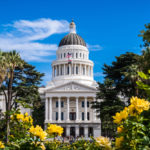 California: Governor Gavin Newsom (D) signed a pair of election reform bills authored by the Chair of the state’s Senate Judiciary Committee into law this week. SB 398 criminalizes lotteries, cash or other prizes, and other incentives in exchange for voter registration. The new law would make those efforts a crime punishable by a fine up to $10,000, imprisonment for up to three years, or both, for any person who knowingly or willfully pays or offers to pay money or other valuable consideration to another to induce them to vote or register to vote or if the payment is made contingent on if a person voted or registered to vote. The other election reform bill authored by State Senator Umberg and signed into law Wednesday was SB 42 which would allow voters to decide in the 2026 election to repeal the statewide ban on public campaign financing programs.
California: Governor Gavin Newsom (D) signed a pair of election reform bills authored by the Chair of the state’s Senate Judiciary Committee into law this week. SB 398 criminalizes lotteries, cash or other prizes, and other incentives in exchange for voter registration. The new law would make those efforts a crime punishable by a fine up to $10,000, imprisonment for up to three years, or both, for any person who knowingly or willfully pays or offers to pay money or other valuable consideration to another to induce them to vote or register to vote or if the payment is made contingent on if a person voted or registered to vote. The other election reform bill authored by State Senator Umberg and signed into law Wednesday was SB 42 which would allow voters to decide in the 2026 election to repeal the statewide ban on public campaign financing programs.
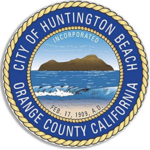 Huntington Beach, California: The Huntington Beach City Council October 7, voted unanimously to pass a resolution seeking a legally valid and transparent election next year. Huntington Beach Mayor Pat Burns brought forth the resolution. “To me, there’s been so much question to the last several elections, and it bothers me,” Burns said. “The importance of our republic is that we have solid, trustworthy confidence in our elections. When you don’t have confidence, it discourages participation. I dread the thought of people not voting because they don’t have the confidence because our elections aren’t tight, our systems aren’t tight … I don’t trust some of the things that I’ve seen.” The city’s resolution asks for infrastructure compliance, voter verification, ballot security, accurate counts and proven outcomes.
Huntington Beach, California: The Huntington Beach City Council October 7, voted unanimously to pass a resolution seeking a legally valid and transparent election next year. Huntington Beach Mayor Pat Burns brought forth the resolution. “To me, there’s been so much question to the last several elections, and it bothers me,” Burns said. “The importance of our republic is that we have solid, trustworthy confidence in our elections. When you don’t have confidence, it discourages participation. I dread the thought of people not voting because they don’t have the confidence because our elections aren’t tight, our systems aren’t tight … I don’t trust some of the things that I’ve seen.” The city’s resolution asks for infrastructure compliance, voter verification, ballot security, accurate counts and proven outcomes.
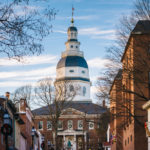 Maryland: Maryland House Republicans are planning to propose legislation that they said would crack down on voter fraud and address noncitizen voting. Del. Bob Long sits on the House Ways and Means Committee, which considers potential changes to election laws and procedures in the state. He is sponsoring a bill that would require a photo ID to vote. Under the proposed bill, a voter would be able to present a valid, non-government photo ID and current utility bill, bank statement or other official document if they do not have a government-issued ID. Those without any valid form of ID would be able to cast a provisional ballot. Del. Kevin Hornberger is sponsoring a second proposed bill that would require the state Board of Elections to verify a voter’s citizenship using the federal Systematic Alien Verification for Entitlements (SAVE) program. The SAVE program is administered by U.S. Citizenship and Immigration Services. States and local governments use it to verify a person’s citizenship or immigration status. Hornberger said the legislation would give the Board of Elections “Yet another arrow in their quiver to ensure that those individuals who are registered to vote are citizens.”
Maryland: Maryland House Republicans are planning to propose legislation that they said would crack down on voter fraud and address noncitizen voting. Del. Bob Long sits on the House Ways and Means Committee, which considers potential changes to election laws and procedures in the state. He is sponsoring a bill that would require a photo ID to vote. Under the proposed bill, a voter would be able to present a valid, non-government photo ID and current utility bill, bank statement or other official document if they do not have a government-issued ID. Those without any valid form of ID would be able to cast a provisional ballot. Del. Kevin Hornberger is sponsoring a second proposed bill that would require the state Board of Elections to verify a voter’s citizenship using the federal Systematic Alien Verification for Entitlements (SAVE) program. The SAVE program is administered by U.S. Citizenship and Immigration Services. States and local governments use it to verify a person’s citizenship or immigration status. Hornberger said the legislation would give the Board of Elections “Yet another arrow in their quiver to ensure that those individuals who are registered to vote are citizens.”
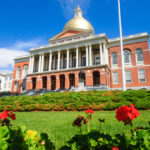 Massachusetts: A proposal to sever the tie between the annual street list and voter registration status to reduce voting barriers in Massachusetts has the backing of voting rights advocates. But it met resistance from the office in charge of summoning jurors and raised questions for the Senate’s election laws point person. “As of 2024, the voter list was at 770,000 inactive voters — that’s 15% of the registered voters in Massachusetts,” state Rep. Shirley Arriaga, D-8th Hampden, told her colleagues last month. “Removing the link between the municipal census and voter registration ensures that access to the ballot is protected, is strengthened, and everyone in our community has that right [to vote].” Existing law deems a voter “inactive” if they fail to respond to the annual street list, also often referred to as the municipal census. House and Senate bills, respectively sponsored by Arriaga and Sen. Cynthia Stone Creem, D-Norfolk/Middlesex, seek to disrupt that relationship since “Massachusetts is in a minority of jurisdictions that tie voter registration to the municipal census,” according to Creem’s summary.
Massachusetts: A proposal to sever the tie between the annual street list and voter registration status to reduce voting barriers in Massachusetts has the backing of voting rights advocates. But it met resistance from the office in charge of summoning jurors and raised questions for the Senate’s election laws point person. “As of 2024, the voter list was at 770,000 inactive voters — that’s 15% of the registered voters in Massachusetts,” state Rep. Shirley Arriaga, D-8th Hampden, told her colleagues last month. “Removing the link between the municipal census and voter registration ensures that access to the ballot is protected, is strengthened, and everyone in our community has that right [to vote].” Existing law deems a voter “inactive” if they fail to respond to the annual street list, also often referred to as the municipal census. House and Senate bills, respectively sponsored by Arriaga and Sen. Cynthia Stone Creem, D-Norfolk/Middlesex, seek to disrupt that relationship since “Massachusetts is in a minority of jurisdictions that tie voter registration to the municipal census,” according to Creem’s summary.
Legal Updates
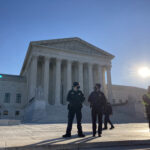 Supreme Court News: Concerned about chaotic post-election litigation, the Supreme Court seemed open this week to making it easier for political candidates to challenge election rules. “What you’re sketching out for us is a potential disaster,” Chief Justice John Roberts told Illinois’ solicitor general. Illinois said candidates must prove an election rule was harmful to bring a court challenge, but most of the justices were concerned the requirement would limit election litigation to high-profile, close cases that pressure courts to intervene in the days and weeks around Election Day. “You’re saying, if the candidate is going to win by 65%, no standing, but if the candidate hopes to win by a dozen votes … then he has standing,” Roberts, a George W. Bush appointee, told Illinois’ solicitor general. “But we’re not going to know that until we get very close to the election, so it’s going to be the most fraught time for the court to get involved in electoral politics.” U.S. Representative Michael Bost, a Republican from Illinois, said the court could avoid that result by loosening the requirements for candidates to bring lawsuits. The only question before the Supreme Court was whether Bost had standing to challenge the mail-in ballot rule — not whether the rule itself was lawful. Illinois argued that Bost needed to show that the ballot deadline hurt his electoral chances. But the justices appeared more receptive to Bost’s arguments, worrying that parsing the degree to which a rule impacted a candidate’s success in a race was too political. Justices Sonia Sotomayor and Ketanji Brown Jackson broke with their conservative colleagues. Sotomayor, a Barack Obama appointee, said lowering standing requirements for candidates could unnecessarily open election rules up to litigation. “[Bost’s] rule would say that that candidate who has not just an insubstantial but a statistically almost impossible chance of winning, that that candidate can come in and seek a change of that rule,” Sotomayor said.
Supreme Court News: Concerned about chaotic post-election litigation, the Supreme Court seemed open this week to making it easier for political candidates to challenge election rules. “What you’re sketching out for us is a potential disaster,” Chief Justice John Roberts told Illinois’ solicitor general. Illinois said candidates must prove an election rule was harmful to bring a court challenge, but most of the justices were concerned the requirement would limit election litigation to high-profile, close cases that pressure courts to intervene in the days and weeks around Election Day. “You’re saying, if the candidate is going to win by 65%, no standing, but if the candidate hopes to win by a dozen votes … then he has standing,” Roberts, a George W. Bush appointee, told Illinois’ solicitor general. “But we’re not going to know that until we get very close to the election, so it’s going to be the most fraught time for the court to get involved in electoral politics.” U.S. Representative Michael Bost, a Republican from Illinois, said the court could avoid that result by loosening the requirements for candidates to bring lawsuits. The only question before the Supreme Court was whether Bost had standing to challenge the mail-in ballot rule — not whether the rule itself was lawful. Illinois argued that Bost needed to show that the ballot deadline hurt his electoral chances. But the justices appeared more receptive to Bost’s arguments, worrying that parsing the degree to which a rule impacted a candidate’s success in a race was too political. Justices Sonia Sotomayor and Ketanji Brown Jackson broke with their conservative colleagues. Sotomayor, a Barack Obama appointee, said lowering standing requirements for candidates could unnecessarily open election rules up to litigation. “[Bost’s] rule would say that that candidate who has not just an insubstantial but a statistically almost impossible chance of winning, that that candidate can come in and seek a change of that rule,” Sotomayor said.
In a brief dated October 7, 23 state attorneys general asked the U.S. Supreme Court to review a lower court’s decision in Turtle Mountain Band of Chippewa Indians v. Howe, which would prevent individuals from suing to enforce the Voting Rights Act. In their brief, the attorneys general argue in support of the individual right to sue to enforce Section 2 of the Voting Rights Act, which bars state and local governments from enacting racially discriminatory policies, ensuring American citizens would not be denied or restricted from casting their ballot. While the U.S. Attorney General and private citizens have been able to file lawsuits to enforce this provision for nearly 60 years, a decision from the United States Court of Appeals for the Eighth Circuit has called that practice into question. In their brief, the group of attorneys general argue that private enforcement of the act is essential, and has acted as the primary avenue for enforcing the law since it was enacted. They also argue that exclusively relying on the U.S. Attorney General to enforce the law would be insufficient to protect voters from racial discrimination.
Andrew Hess, a Michigan man charged with making a “terrorist threat” against “an Oakland County election official” has filed an application on the interim docket urging the court to “intervene and stop the county from prosecuting him,” according to the Detroit Free Press. “Hess was charged after attending a recount in December 2023 at which an elections employee said she heard him say, ‘hang Joe for treason,’ apparently referring to Oakland County Elections Director Joe Rozell. … [Hess] has maintained in court documents that any comments he made were ‘off-hand’ and ‘political commentary and hyperbole’ protected by the First Amendment’s free speech guarantee.”
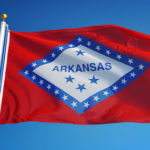 Arkansas: A Franklin County resident asked a judge this week to move up a special election to replace the late Sen. Gary Stubblefield by six months, alleging the current schedule prevents District 26 voters from having a voice during the 2026 fiscal session. The lawsuit, which attorney Jennifer Waymack Standerfer filed in Pulaski County Circuit Court on behalf of Colt Shelby of Cecil, seeks an injunction and an order declaring Stubblefield’s seat must be filled within 150 days of his death. Gov. Sarah Huckabee Sanders and Secretary of State Cole Jester are the defendants. “We look forward to a full victory,” Jester said in a statement provided by his spokesperson. The complaint requests a judge hold a hearing within seven days. Pulaski County Circuit Court Judge Patricia James was assigned to the case. “The General Assembly will officially convene and begin the 2026 Fiscal Session on April 8, 2026, where it will determine how to spend billions of dollars of taxpayer money and set the state budget for the upcoming fiscal year,” the complaint says. “The Governor’s designated election schedule prevents the people of Senate District 26 from having representation at the 2026 Fiscal Session.”
Arkansas: A Franklin County resident asked a judge this week to move up a special election to replace the late Sen. Gary Stubblefield by six months, alleging the current schedule prevents District 26 voters from having a voice during the 2026 fiscal session. The lawsuit, which attorney Jennifer Waymack Standerfer filed in Pulaski County Circuit Court on behalf of Colt Shelby of Cecil, seeks an injunction and an order declaring Stubblefield’s seat must be filled within 150 days of his death. Gov. Sarah Huckabee Sanders and Secretary of State Cole Jester are the defendants. “We look forward to a full victory,” Jester said in a statement provided by his spokesperson. The complaint requests a judge hold a hearing within seven days. Pulaski County Circuit Court Judge Patricia James was assigned to the case. “The General Assembly will officially convene and begin the 2026 Fiscal Session on April 8, 2026, where it will determine how to spend billions of dollars of taxpayer money and set the state budget for the upcoming fiscal year,” the complaint says. “The Governor’s designated election schedule prevents the people of Senate District 26 from having representation at the 2026 Fiscal Session.”
Three women without citizenship status have been arrested and charged with felonies for violating Arkansas election law by voting in 2024, Attorney General Tim Griffin announced Thursday. The investigation began earlier this year “when federal officials notified us about certain voters in Arkansas whose voting records appeared to be incongruent with their citizenship status,” Griffin said. Working with the U.S. Department of Homeland Security’s Homeland Security Investigations arm, investigators determined the conduct of three people warranted further investigation, according to a news release. Griffin said in a press conference that such arrests and charges are “rarities” and “not a persistent problem,” but that his office is committed to protecting the integrity of Arkansas elections. He created an Election Integrity Unit in his office’s Special Investigations Division in March 2023.
 Maryland: A lawyer representing five unaffiliated voters is asking an Anne Arundel County Circuit Court judge to deny a motion to dismiss their suit challenging a state law that limits the participation of unaffiliated voters in Maryland primary elections. The plaintiffs, represented by former Lt. Gov. Boyd Rutherford, are asking a judge to rule that state funding for partisan primaries violates their rights under the Maryland Constitution. An attorney representing the state is asking the judge to dismiss the lawsuit. The case is scheduled for an Oct. 20 motions hearing. “This case, at its core, is a voting rights case,” Rutherford wrote on behalf of his clients. “It is not, as defendants suggest, a case brought to assert some violation of the Maryland Election law and to challenge a particular election outcome. Nor is it a taxpayer case.” Instead, Rutherford said his clients are asserting that primary elections for the Democratic and Republican parties should not be paid for with tax dollars if nearly 1 million unaffiliated voters in the state cannot participate.
Maryland: A lawyer representing five unaffiliated voters is asking an Anne Arundel County Circuit Court judge to deny a motion to dismiss their suit challenging a state law that limits the participation of unaffiliated voters in Maryland primary elections. The plaintiffs, represented by former Lt. Gov. Boyd Rutherford, are asking a judge to rule that state funding for partisan primaries violates their rights under the Maryland Constitution. An attorney representing the state is asking the judge to dismiss the lawsuit. The case is scheduled for an Oct. 20 motions hearing. “This case, at its core, is a voting rights case,” Rutherford wrote on behalf of his clients. “It is not, as defendants suggest, a case brought to assert some violation of the Maryland Election law and to challenge a particular election outcome. Nor is it a taxpayer case.” Instead, Rutherford said his clients are asserting that primary elections for the Democratic and Republican parties should not be paid for with tax dollars if nearly 1 million unaffiliated voters in the state cannot participate.
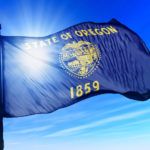 Oregon: A judge in Douglas County Circuit Court ruled against motions last week to dismiss a high-profile elections case. The import of those rulings is twofold: First, the specific dispute will continue toward trial; and second, the continuation of the case will keep attention focused on some of the participants’ larger aim—to end Oregon’s vote-by-mail system. Most directly, the judge’s rulings keep alive a petition for review that plaintiff Todd Vaughn filed in June after apparently losing his seat on the Umpqua Public Transportation District board. As OJP has previously reported, Vaughn claims the vote tally, conducted by Douglas County Clerk Dan Loomis, unfairly cost him his seat.
Oregon: A judge in Douglas County Circuit Court ruled against motions last week to dismiss a high-profile elections case. The import of those rulings is twofold: First, the specific dispute will continue toward trial; and second, the continuation of the case will keep attention focused on some of the participants’ larger aim—to end Oregon’s vote-by-mail system. Most directly, the judge’s rulings keep alive a petition for review that plaintiff Todd Vaughn filed in June after apparently losing his seat on the Umpqua Public Transportation District board. As OJP has previously reported, Vaughn claims the vote tally, conducted by Douglas County Clerk Dan Loomis, unfairly cost him his seat.
 Wisconsin: Wisconsin state agencies asked a Waukesha County Circuit Court judge to stay his ruling requiring election officials to verify the citizenship of existing voters and those seeking to register. The Wisconsin Department of Justice filed the motion on behalf of the Wisconsin Elections Commission, the Department of Transportation, and related state officials. In it, the respondents called Judge Michael Maxwell’s ruling “impermissively vague,” because the order bars election officials from processing new registrations without “verification” of applicants’ citizenship but doesn’t define the verification process. The filing says that any new citizenship verification process for online voter registration would require months of testing and development, and that disabling the electronic registration system in the meantime would conflict with state law requiring that system to exist. “The impact would be enormous: Wisconsin receives an average of more than 200 online voter registrations per day,” the filing states, citing a declaration from Robert Kehoe, the election commission’s deputy administrator. The state Justice Department repeated its argument that a citizenship verification system would exceed what state law requires, noting that the Legislature has expressly required proof of residency for new registrants but not proof of citizenship. The motion further contends Maxwell exceeded his authority by effectively prohibiting local election officials from processing new registrations without verifying citizenship, even though local officials aren’t party to the case. Late on October 6, Maxwell put a hold on his order until the state’s motion opposing it is decided.
Wisconsin: Wisconsin state agencies asked a Waukesha County Circuit Court judge to stay his ruling requiring election officials to verify the citizenship of existing voters and those seeking to register. The Wisconsin Department of Justice filed the motion on behalf of the Wisconsin Elections Commission, the Department of Transportation, and related state officials. In it, the respondents called Judge Michael Maxwell’s ruling “impermissively vague,” because the order bars election officials from processing new registrations without “verification” of applicants’ citizenship but doesn’t define the verification process. The filing says that any new citizenship verification process for online voter registration would require months of testing and development, and that disabling the electronic registration system in the meantime would conflict with state law requiring that system to exist. “The impact would be enormous: Wisconsin receives an average of more than 200 online voter registrations per day,” the filing states, citing a declaration from Robert Kehoe, the election commission’s deputy administrator. The state Justice Department repeated its argument that a citizenship verification system would exceed what state law requires, noting that the Legislature has expressly required proof of residency for new registrants but not proof of citizenship. The motion further contends Maxwell exceeded his authority by effectively prohibiting local election officials from processing new registrations without verifying citizenship, even though local officials aren’t party to the case. Late on October 6, Maxwell put a hold on his order until the state’s motion opposing it is decided.
Opinions This Week
National Opinions: Funding
California: Election security
Florida: Motor voter
Indiana: Secretary of state
Kansas: UOCAVA
New Mexico: Ranked choice voting
North Carolina: Disaster preparedness
Oregon: Voter data
Pennsylvania: Poll workers
Upcoming Events
Leah Litman on the Supreme Court: University of Michigan Law School Professor Leah Litman will discuss her provocative new book Lawless: How the Supreme Court Runs on Conservative Grievance, Fringe Theories, and Bad Vibes, which argues that the Court has abandoned legal reasoning in favor of political grievances dressed up in judicial language. With her signature blend of serious legal analysis and irreverent wit, Litman will discuss how major Supreme Court decisions are made. Litman will be in dialogue with UCLA Law Professor Rick Hasen. When: October 14, 7:30pm Pacific. Where: The Hammer Museum, Los Angeles.
Protecting the Election: AI and Governance Conference at WashU: Join us for this two-day in-person research and practitioner conference at WashU on October 16-17, 2025, to discuss research regarding AI and governance and how this applies to U.S. elections. Research topics include how chatbots can be used to engage with voters, how social media influences voters, what the electorate knew (or did not know) about the candidates and issues during recent elections, misinformation in elections, rhetoric about election integrity, and AI strategies for the administration of elections. We will also hear from practitioners during the conferences about their experiences with and needs for AI in recent elections and their intentions for future use of AI in elections. When: Oct. 16-17. Where: St. Louis.
Redistricting and Re-Redistricting Controversies and the 2026 Elections: The Safeguarding Democracy Project at UCLA Law promotes research, collaboration, and advocacy aimed at ensuring continued free and fair elections in the United States. This webinar will be moderated by Rick Hasen and feature: Guy-Uriel Charles, Harvard Law Moon Duchin, The Data and Democracy Lab Data and Democracy Research Initiative, U of Chicago Michael Li, NYU Law Brennan Center for Justice Nicholas Stephanopoulos, Harvard Law. When: October 16, 3:15pm Eastern. Where: Online.
Democracy at 250: From Gerrymandering to Genuine Representation: As the United States approaches its 250th anniversary, questions of representation and democratic legitimacy are front and center. From partisan gerrymandering and primary systems that drive polarization to calls for proportional representation and ranked-choice voting, Americans are increasingly debating how electoral structures shape the health of our republic. This event—part of R Street’s 250th Anniversary Series—brings together R Street’s Governance Policy Director, Matthew Germer; political analyst Chris Stirewalt; and legal scholar Walter Olson to explore the landscape of electoral reform and what it means for American democracy at 250. Together, they will examine: How current electoral practices affect representation, accountability, and public trust. The range of reforms under discussion, from proportional representation to ranked-choice voting and beyond. The legal, political, and cultural barriers to reform. How the Founders’ principles—equality, popular sovereignty, and civic virtue—might guide us in strengthening democratic institutions today. A reception will follow to continue the conversation. When: October 21. Where: Washington, DC.
NPC Headliners: “Giving Up Is Unforgivable,” Joyce Vance: Former U.S. Attorney Joyce Vance will discuss democracy, civics, and her new book Giving Up Is Unforgivable: A Manual for Keeping a Democracy at a Headliners Book Event on Thursday, October 23 at 6 p.m. Vance is a former U.S. Attorney under President Barack Obama, now serving as a law professor at the University of Alabama, a legal analyst for MSNBC and NBC, and the author of the popular Substack, Civil Discourse. In Giving Up Is Unforgivable, she delivers a hopeful yet urgent message that merges civic history and practical guidance for preserving democracy. As the voice behind two podcasts and a chart‑topping newsletter, she empowers readers to counter democratic erosion through everyday actions and citizen engagement. Vance’s message is simple: we’re in this together, and giving up is not an option. The event will include a discussion with the author and a book signing. Ticket prices are $5 for National Press Club members and $10 for general admission. Books are available for pre-purchase. A limited number of books will be available at the event. When: October 23. Where: Washington, DC.
Everyday Democracy: Please join New America’s Political Reform Program, New America’s Education Policy Program, Philanthropy for Active Civic Engagement (PACE), Campus Compact, and Democracy Notes on Oct 24, 2025 from 10am-12pm for a dynamic, in-person event with civic leaders from across the country. The program will feature back-to-back fireside chats with experts who are advancing participatory governance in communities around the United States. From local democracy forums to grassroots coalitions, panelists will discuss how they are building trust, collectively solving everyday problems, and strengthening civic life at the local level. This interactive conversation will bring together practitioners from inside and outside government who are reimagining how residents and institutions work together. We will explore how culture—our shared norms, stories, and ways of engaging—shapes the practice of democracy, and why that matters more than ever in an era of national polarization and fractured federal infrastructure. Participants will gain insights into innovative approaches that foster belonging, bridge divides, and widen civic participation in decision-making. Whether through public assemblies, co-governance models, or creative community-building, these leaders are showing how democratic culture can be sustained and renewed from the ground up. When: October 24. Where: Washington, DC.
Symposium at Auburn University: The 5th Biennial Auburn Symposium in Election Administration will be held October 26-28, 2025 at the Hotel at Auburn University. The Symposium launched in 2015 to foster conversation about critical issues that impact American democratic institutions, support the development of common understanding and language across diverse professional communities engaged in the practice of election administration, and promote dialogue between those who conduct elections and those who study the way elections operate. The series is held in odd-numbered years on the Auburn University campus. This year, the theme is Innovative Election Administration Funding Solutions, exploring new, practical, and sustainable solutions to address the critical issue of adequate funding of election administration across local, state, and/or federal levels in the United States. Questions: elect1@auburn.edu. When: October 26-28. Where: Auburn, Alabama.
NDACo Annual Conference [North Dakota]: When: October 26-28.
How Will Upcoming Supreme Court Action Impact Local Election Administrators: On December 7, the U.S. Supreme Court will hear oral arguments for Moore v. Harper, a landmark case examining whether state legislatures have exclusive power to set rules regarding federal elections. On October 27th, NACo and the National League of Cities (NLC) held an informational webinar breaking down the background of the case and its potential ramifications for local elections administration. Speakers include: Seth Bluestein, Philadelphia city commissioner, James Romoser, editor of SCOTUSBlog and Ricky Hatch, Weber County, Utah clerk/auditor. When: October 27, 3pm Eastern. Where: Online
Media, Social Media, and the Changing Election Information Environment in 2026: The Safeguarding Democracy Project at UCLA Law promotes research, collaboration, and advocacy aimed at ensuring continued free and fair elections in the United States. This webinar will be moderated by Rick Hasen and feature: Danielle Citron, UVA Law, Brendan Nyhan, Dartmouth, and Amy Wilentz, UCI Emerita. When: October 30, 3:15pm Eastern. Where: Online.
Election Hero Day: Election Hero Day is a nonpartisan, national celebration recognizing the tremendous contributions that election officials, their staff, and poll workers make to ensure a safe, secure voting experience for all Americans. Taking place on November 3, 2025, nonprofits, business leaders, brands, public officials, and more will unite to honor the election heroes in our communities. With your support, Election Hero Day will help boost election official morale ahead of Election Day and send a clear message to the public that we support our friends and neighbors who play such a vital role in preserving our democracy. When: November 3.
2025 National Student Vote Summit– The Students Learn Students Vote Coalition is proud to host the 10th annual National Student Vote Summit. At the summit, we’ll unite nonprofit leaders, campus staff, administrators, faculty members, philanthropic partners, election officials, and students from across the country to continue a decade-strong tradition of collective action and impact. Building on the momentum and insights from our 2024 Summit—where more than 300 nonpartisan student vote leaders took on challenges like local election turnout, combating misinformation, and reducing post-election disengagement — this milestone gathering aims to amplify our collective power and chart a course for an even more impactful 2026. We’ll kick off the Summit with the ALL IN Campus Democracy Challenge Awards Ceremony, celebrating college student voting achievements nationwide and setting the stage for a memorable experience. Awards will be presented to college and university campuses, student leaders and individual champions for their nonpartisan contributions to increasing student voter engagement in the 2024 Election. Thanks to our incredible host partners at the University of Maryland, College Park, we’ll gather once again at UMD’s Stamp Student Union. There, in collaboration with TerpsVote, we’ll create an inspiring space for learning, connection, and celebration. Every participant will leave equipped with the tools, relationships, and momentum to make 2026 a historic year for nonpartisan student voter engagement. When: November 12-15. Where: College Park, Maryland.
57th Annual Tennessee County Officials Association (COAT) Conference: When: November 16-19. Where: Pigeon Forge.
The Supreme Court, the Voting Rights Act, and the 2026 Elections: The Safeguarding Democracy Project at UCLA Law promotes research, collaboration, and advocacy aimed at ensuring continued free and fair elections in the United States. This webinar will be moderated by Rick Hasen and feature: Ellen Katz, University of Michigan, Lenny Powell, Native American Rights Fund (NARF), and Deuel Ross, Legal Defense Fund. When: November 18, 3:15pm Eastern. Where: Online.
2025 New England Association of City and Town Clerks Conference: When: November 19-21. Where: Bangor, Maine.
JEOLC 2026: The Election Center will host the 2026 JEOLC conference at the Ritz Carlton in Pentagon City, Virginia from January 6-10. One CERA renewal class will be offered. Please visit the Election Center website for more information and to register when it’s available.
iGO Midwinter Conference: The International Association of Government Officials will hold its Midwinter Conference in Albuquerque, New Mexico from January 19-23, 2026. Please visit the iGO website for more information and to register.
2026 NASS Winter Conference: The National Association of Secretaries of State will hold its 2026 Winter Conference in Washington, DC from January 28-31. Please refer to the NASS website for more information about the event and to register.
2026 NASED Winter Conference: Twice a year, National Association of State Election Directors members gather to discuss the latest developments in election administration. Members of the public are welcome to attend at the non-member registration rate. Please refer to the NASED website for information about the 2026 Winter Conference. When: Feb. 1-3, 2026. Where: Washington, DC.
2026 NACo Legislative Conference: The National Association of Counties will hold its 2026 Legislative Conference in Washington, DC from February 21-24, 2026. Please visit the NACo website for more information about the event and to register.
Election Center February Workshop: Focusing on interaction and sharing of practices selected by members to receive People’s Choice Awards, the February Workshops formalize those critical conversations that happen at conferences during meals, in the hallways, & the hotel lobby. The agenda augments the award-winning member presentations with applicable research and resources.Two CERA core courses and one renewal will be held following the workshop. When: February 25-27. Where: Jacksonville, Florida.
Job Postings This Week
electionlineWeekly publishes election administration job postings each week as a free service to our readers. To have your job listed in the newsletter, please send a copy of the job description, including a web link to mmoretti@electionline.org. Job postings must be received by 5pm on Wednesday in order to appear in the Thursday newsletter. Listings will run for three weeks or till the deadline listed in the posting.
Administrative Specialist, King County, Washington – The Department of Elections is searching for energetic and resourceful professionals who like to “get stuff done”. The Administrative Specialist II positions in the Voter Services Department combines an exciting, fast-paced environment with the opportunity to cultivate talents and apply a variety of skills. The ideal candidate will have a desire to help ensure the democratic process through public service. They will thrive in an innovative environment and will not hesitate to roll up both sleeves, work hard, have fun, and get the job done. Job Duties: Provide excellent customer service to internal and external customers in person, via telephone, and via e-mail by processing voter registrations, communicating election program information and explaining election procedures, guidelines and regulations. Provide backup support for translation and/or interpreting and proof election-related documents and web materials from English to Chinese (traditional text). This includes but is not limited to voter registration information, letters, and other correspondence, notice of elections, ballot titles, voters’ pamphlet information, candidate statements, ballot measures, etc. to limited English speaking (LES) voters. Perform production-level computer work which includes accurate data entry, retrieving and editing records. Organize and coordinate work activities and assist with providing training and one-on-one instruction to diverse staff. Set up records and file documents in both electronic and paper formats. Review documents for proper format, accuracy, completion, eligibility, and other legal guidelines. Audit work group data entry activities to ensure performance quality and efficiency of work. Utilize spreadsheets, word documents and reports to track and document performance data. Research and resolve questions from staff, citizens and stakeholders. Document and improve work processes, procedures and instructions. Salary: $27.03 – $34.40 Hourly. Application: For the complete job listing and to apply, click here.
Assistant Registrar of Voters, Santa Clara County, California– Under general direction, the Assistant Registrar of Voters supports the planning, organization, and oversight of the County Registrar of Voters Department. This executive leadership position reports directly to the Registrar of Voters and plays a key role in administering and managing departmental operations. The department is responsible for voter registration, the conduct of elections, and related electoral services. The Assistant Registrar of Voters helps ensure that all activities are carried out efficiently, accurately, and in compliance with applicable laws and regulations. This position may assume the responsibility of the Department in the absence of the Registrar of Voters. Salary: $194,184.52 – $249,180.63. Application: For the complete job listing and to apply, click here.
Data Scientist Manager, CIRCLE– This is a limited term position for two years, with the possibility of extension contingent on grant funding. This position is not eligible for severance pay. CIRCLE, the Center for Information & Research on Civic Learning and Engagement at Tisch College within Tufts University, is a non-partisan, independent research organization focused on youth civic engagement in the United States. CIRCLE conducts extensive research that examines how young people in the United States develop knowledge, skills, and dispositions for effective democratic engagement and leverages that research to improve opportunities for all young people to acquire and use the skills and knowledge they need to meaningfully participate in civic life. CIRCLE is especially concerned with understanding, addressing, and ultimately eliminating the systemic barriers that keep some young people marginalized from and underrepresented in civic life. CIRCLE covers a broad range of disciplines and fields, from K-12 civic education, youth voting, youth organizing, youth and civic media, to community characteristics that promote civic development. The Data Scientist/Manager serves as CIRCLE’s technical anchor for all data-intensive research initiatives, bridging advanced analytics with strategic leadership in youth civic engagement research. This role owns the full data lifecycle – from architecting robust systems for all record datasets to translating complex findings into policy-relevant insights. The position requires equal mastery of technical execution (R, SQL, BigQuery) and collaborative leadership, guiding both internal teams and external partners through data challenges in a fast-paced research environment. Salary Range: $79,600 to $119,500. Application: For the complete job listing and to apply, click here.
Deputy Director, Surrey County, North Carolina– The County of Surry is accepting applications for the full-time position of Deputy Director of Elections. This position assists the Elections Director with managing the daily operations of the Board of Elections office and with the preparation and conduct of elections in accordance with federal, state, and local laws. The Deputy Director also serves as Acting Director in the Director’s absence. Key responsibilities include planning, preparing, and conducting all elections; supporting candidate filing, ballot preparation, absentee and early voting, and election-day logistics; overseeing the testing, maintenance, and certification of voting equipment; assisting with reconciliation and post-election reporting; maintaining the voter registration database and conducting list maintenance; supervising and training precinct officials; coordinating polling places and election supplies; preparing training materials and forms; and ensuring compliance with election laws and security protocols. The position also requires excellent customer service to voters, candidates, political parties, and the public, along with representing the department at trainings and community events. Other duties may be assigned as needed. Salary: $41,508 – $69,124. Application For the complete job listing and to apply, click here.
Deputy of Elections, Yolo County, California– Under administrative direction of the Assessor/Clerk-Recorder/Registrar of Voters, the Deputy of Elections assists the Assessor/Clerk-Recorder/Registrar of Voters in the planning, administration, direction, and coordination of the Elections Branch; develops and implements program policy, procedures, and strategic initiatives; oversees major program areas and ensures compliance with applicable laws and regulations; assists the Assessor/Clerk-Recorder/Registrar of Voters with the administration and direction of the department; and may serve as an Assessor/Clerk-Recorder/Registrar of Voters designee or in their absence. An ideal candidate is a highly adaptable and meticulous elections professional with proven leadership experience navigating the rapid pace and strict deadlines of election administration. They possess strong technical skills and a proactive approach to problem-solving, ensuring the accurate and timely execution of all election-related duties. In addition, the following knowledge and abilities are associated with this position. Salary: $111,321.60 – $135,304.00 Annually. Application: For the complete job listing and to apply, click here.
Election Operations & Workforce Manager, Charleston County, South Carolina– The Board of Voter Registration and Elections is an award-winning organization dedicated to excellence in electoral processes. Our mission is to daily serve the Charleston County voting constituency with Vigilance, Objectivity, and Transparency in a manner that promotes due diligence Excellence in all aspects of Elections Management. We are committed to continuous improvement, innovative practices, and exceptional service to our community, ensuring every voter’s voice is heard. Are you driven by a passion for democracy and civic engagement? Join the Board of Voter Registration and Elections as the Election Operations and Workforce Manager and play a critical role in delivering seamless, fair, and accessible elections. Key Responsibilities: Poll Worker Recruitment and Management; Polling Location Management; Liaison and Community Engagement; Support for Election Operations on Election Day and Early Voting; and Team Leadership. Salary: $68,140 – $89,252. Application: For the complete job listing and to apply, click here.
Elections & Voter Registration Director, Athens-Clarke County, Georgia– The purpose of this position is to serve as the Chief Registration Officer and Election Supervisor for Athens-Clarke County, ensuring the lawful, secure, and transparent administration of all voter registration and election activities. The Director provides strategic leadership and operational oversight of election planning, voter registration, ballot preparation, election equipment, polling locations, and results certification in compliance with federal, state, and local laws. This role manages staff and budget, oversees process improvements and emergency preparedness, and maintains accurate and accessible election records. The Director serves as a key advisor and partner to the Board of Elections, collaborates with state and local stakeholders, and acts as a visible spokesperson to strengthen voter education, engagement, and public confidence in the electoral process. Salary: $99,902 – $119,007. Deadline: October 23. Application: For the complete job listing and to apply, click here.
Organizer, Minnesota– We are looking for a creative and collaborative Organizer to join the Common Cause team in Minnesota. This is a key role supporting our organizing and outreach programs and promoting civic engagement across the state. This is a full-time role reporting to the Executive Director, Minnesota and is based in Minnesota, with a preference for candidates located in Olmsted County or St. Cloud, with an expectation to travel around Minnesota at least 2 days per week, with a maximum of 5 days a calendar week during the legislative session, and peak summer engagement season. This is a termed position, starting on November 1, 2025 and ending October 31, 2027. Salary: $63,860 – $80,340 a year. Application: For the complete job listing and to apply, click here.
Remote Sales Director, SOE Software– SOE Software is seeking a driven Sales Director to expand our modernization and transparency solutions for state and local governments. In this full-cycle sales role, you’ll own the process from lead generation through contract signing. You’ll represent SOE at conferences and events, confidently starting conversations and building lasting relationships with government officials. By connecting our technology to outcomes like transparency, accessibility, and public trust, you’ll help election offices and public agencies better serve their communities. Application: For the complete job listing and to apply, click here.
Research Fellow, Center for Election Innovation & Research– CEIR is seeking one or more Research Fellows to join our team and contribute to our research on elections that voters should—and do—trust. This role is an 18-month term-limited position with an expected start date of January 2026. The Research Fellow will work under the direction of the Research Director and in collaboration with other colleagues to support CEIR’s research initiatives. These initiatives include matters pertaining to election administration, voter registration, voter access, and election integrity and security. The Research Fellow will conduct policy research and draft written materials such as reports, issue briefs, and explainers for CEIR’s diverse audience of election officials, policymakers, the media, and other key stakeholders. This Research Fellow will be asked to focus on policy and statutory research, but the Fellow may contribute to other projects (such as data analysis) depending on interest and ability. The Research Fellow will be closely engaged in the Research Team’s efforts to plan and execute research during the 2026 state legislative sessions, primaries and general elections, and post-election processes. The Research Fellow may have the opportunity to propose one or more projects in support of CEIR’s efforts to provide election officials with practical analysis about election administration and inform voters about how elections actually work. This Fellowship is a full-time, term-limited position planned to last for 18 months (anticipated January 2026 until June 2027). Based on performance, interest, and organizational needs, there may be an opportunity for exceptional Fellows to transition to a permanent role at CEIR. This Fellowship is intended for recent graduates of advanced degree programs, but all interested and qualified candidates are encouraged to apply. This Fellowship will focus on research of interest to election administration practitioners and policymakers, and therefore is best suited to researchers interested in career paths outside of academia. Salary: $69,000. Deadline: October 19. Application: For the complete job listing and to apply, click here.
Senior Organizer, Colorado, Common Cause– We are seeking a proactive, collaborative, English and Spanish-speaking Senior Organizer to join the Common Cause team in Colorado. In 2025, Common Cause successfully led an effort to pass the nation’s 8th state-level Voting Rights Act. The Colorado Voting Rights Act protects Colorado from threats to dismantle the federal Voting Rights Act of 1965 and creates stronger protection against voter discrimination. The Colorado Senior Organizer will be critical in driving public education and voter outreach efforts around the new law and executing nonpartisan voter protection efforts in 2026. This is a full-time, fixed-term position for a period of 12 months, from November 15, 2025, to November 15, 2026. The role reports to the State Director and is based in Colorado with a preference for this individual to work out of our Denver office at least 1 day per week. They will also travel to communities across the state on a frequent basis, with the possibility of occasional overnight travel. Salary: $72,100 – $89,610 a year. Application: For the complete job listing and to apply, click here.
Senior Policy Analyst, Elections Project, Bipartisan Policy Center– BPC is currently seeking a Senior Policy Analyst to support the work of the Elections Project, which is housed within BPC’s Democracy Program. The Elections Project develops and advances durable bipartisan policy solutions to create secure, accessible, and trustworthy elections. We envision broad public trust in election outcomes where election administration is fully funded and continually improved with the input of election practitioners. Our work is guided by the idea that election policy must be resilient to shifting political winds and crafted with the input of election officials. The Senior Policy Analyst will play a central role in the development and implementation of the Election Project’s research and advocacy priorities. This analyst role will focus on existing priorities of the Elections Project, including election administration workforce (recruitment, retention, and training), election infrastructure and technology, and supporting the needs of local election official associations. The analyst will also have the flexibility to explore research topics of their choice if those topics are in alignment with the needs of the project and of BPC. Salary: $70,000 – $95,000. Application: For the complete job listing and to apply, click here.
Training Program Manager, Charleston County, South Carolina– Democracy works best when every election runs flawlessly—and that starts with exceptional training. As Training Manager for the Board of Voter Registration and Elections, you’ll empower our poll managers and staff to deliver elections that are fair, accessible, and trusted by every voter in Charleston County. The Board of Voter Registration and Elections is an award-winning organization dedicated to excellence in electoral processes. Our mission is to daily serve the Charleston County voting constituency with Vigilance, Objectivity, and Transparency in a manner that promotes due diligence Excellence in all aspects of Elections Management. We believe that people are the foundation of successful elections. That’s why training is not just a task—it’s a core function of our mission. When our teams are prepared, voters can be confident that their voice will be heard, and their ballot counted. As Training Manager, you are not simply teaching procedures—you are building trust in the democratic process. You will design and deliver training that helps every poll manager, staff member, and Board member understand the importance of their role, perform it with confidence, and meet the highest standards of service to our voters. Salary: $68,140.00 – $82,000.00 Annually. Application: For the complete job listing and to apply, click here.
Marketplace
electionline provides no guarantees as to the quality of the items being sold and the accuracy of the information provided about the sale items in the Marketplace. Ads are provided directly by sellers and are not verified by electionline. If you have an ad for Marketplace, please email it to: mmoretti@electionline.org